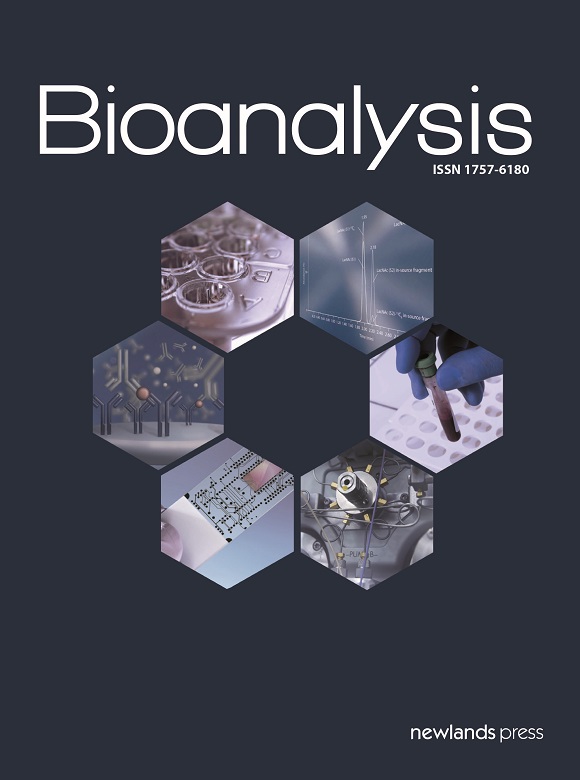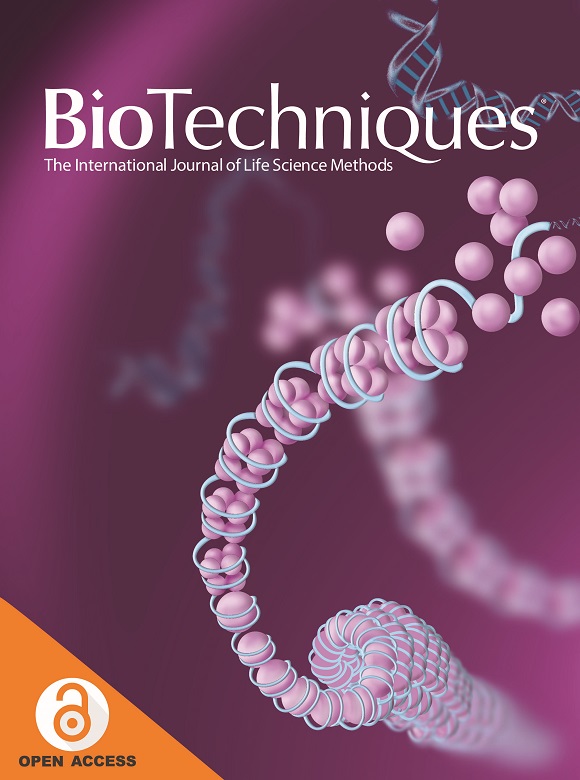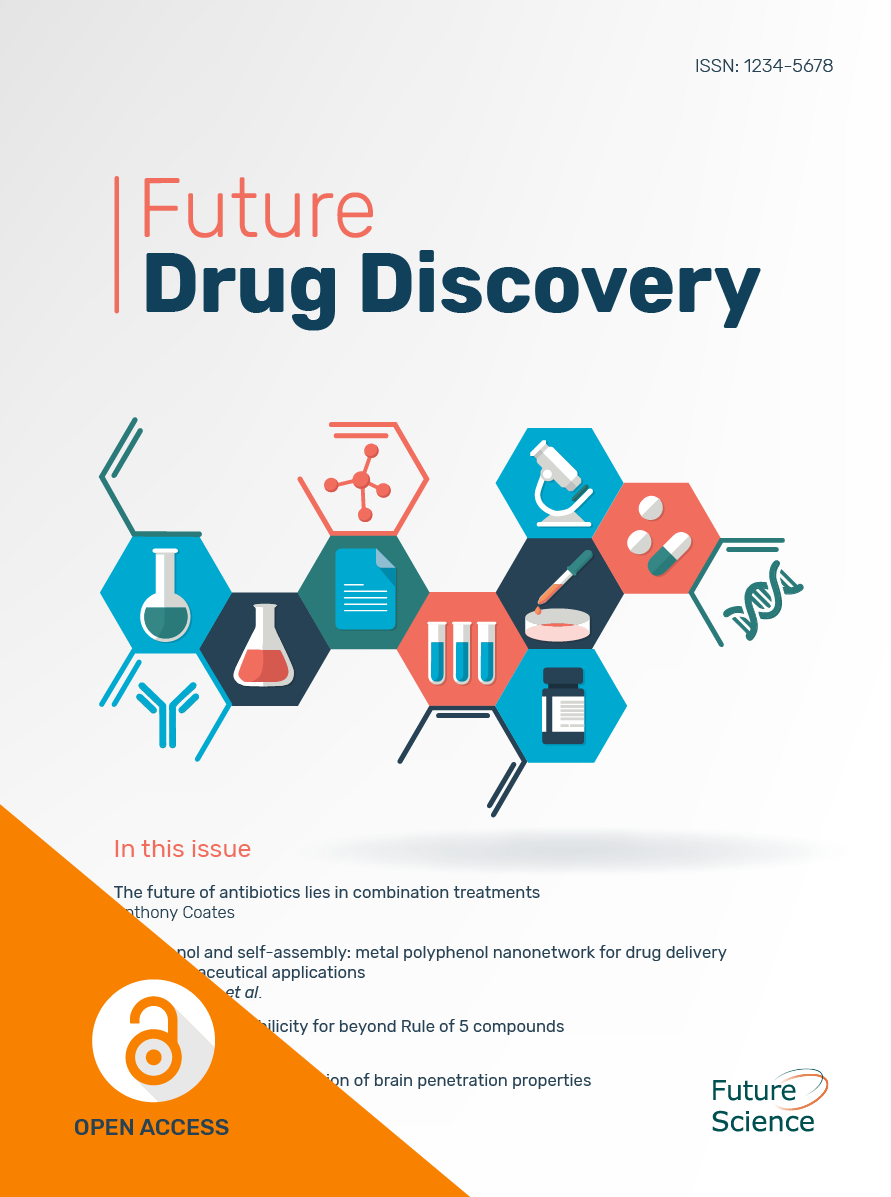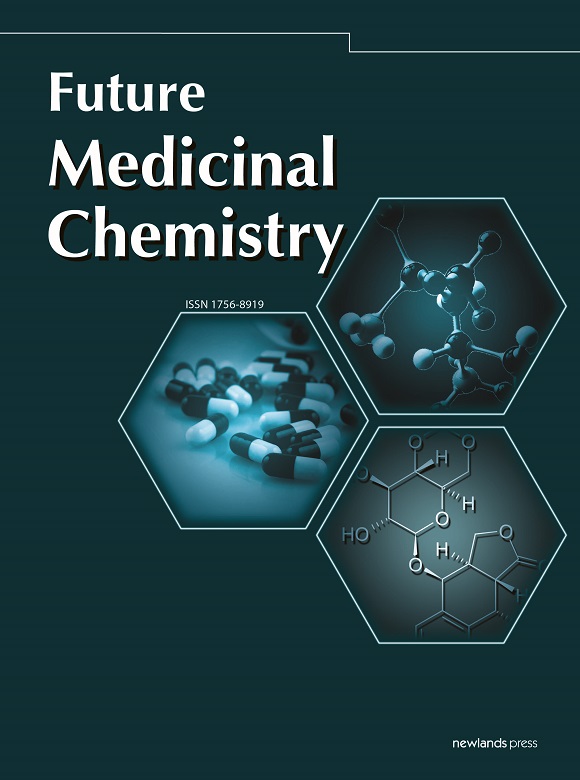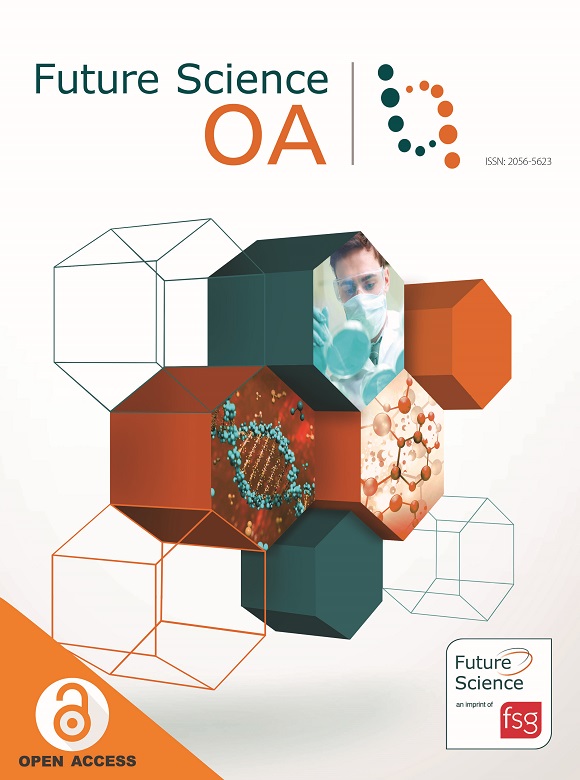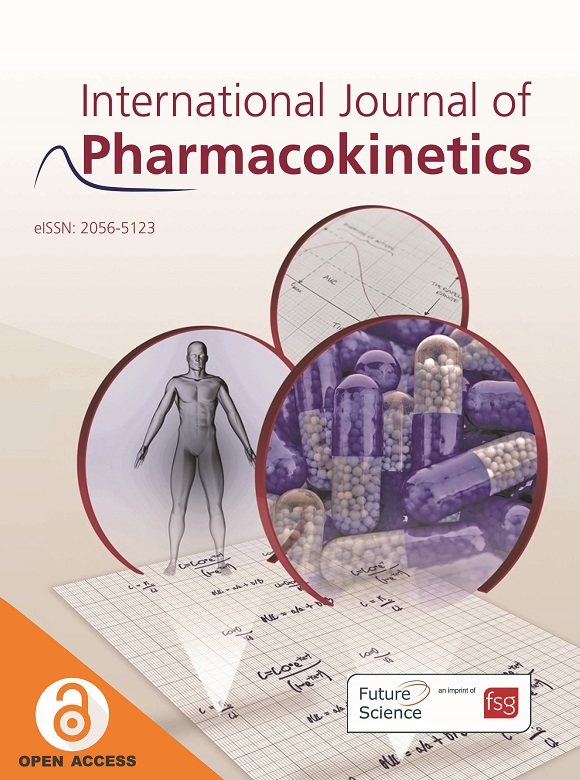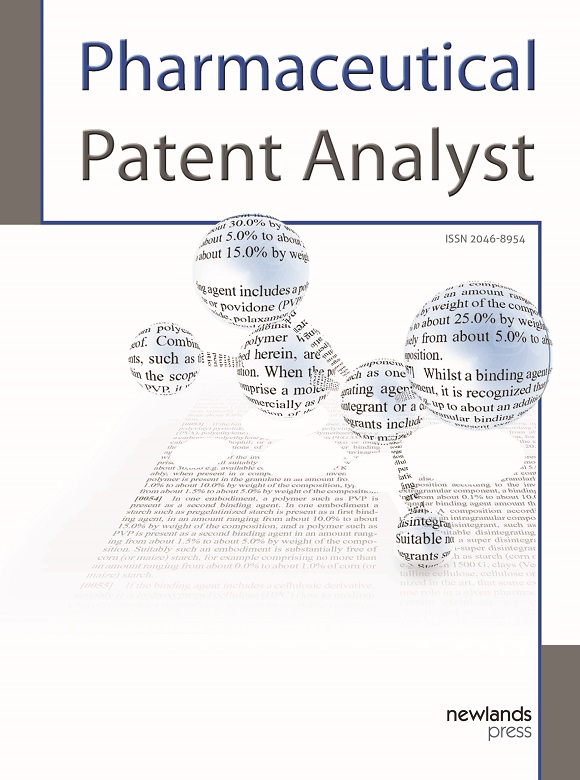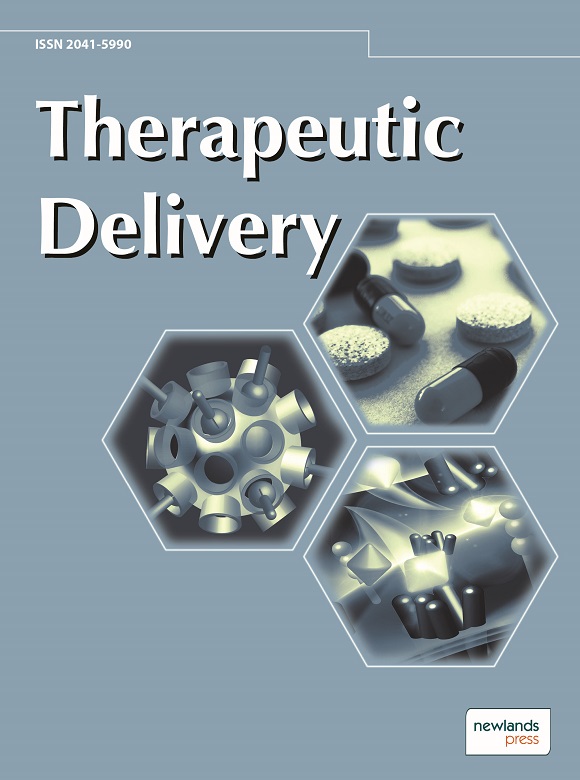Synthesis, in vitro and in silico anticancer evaluation of novel pyridin-2-yl estra-1,3,5(10)-triene derivatives
Abstract
Aim: The aim of this study was the synthesis of steroid compounds with heterocyclic rings and good anticancer properties. Materials & methods: The synthesis, in silico and in vitro anticancer testing of novel pyridin-2-yl estra-1,3,5(10)-triene derivatives was performed. Results: All synthesized compounds have shown promising results for, antiproliferative activity, relative binding affinities for the ligand binding domains of estrogen receptors α, β and androgen receptor, aromatase binding potential, and inhibition of AKR1C3 enzyme. Conclusion: 3-Benzyloxy (17E)-pycolinilidene derivative 9 showed the best antitumor potential against MDA-MB-231 cell line, an activity that can be explained by its moderate inhibition of AKR1C3. Molecular docking simulation indicates that it binds to AKR1C3 in a very similar orientation and geometry as steroidal inhibitor EM1404.
Tweetable abstract
The series of pyridine-containing estra-1,3,5(10)-triene derivatives was synthesized. One novel derivative stood out by its excellent activity against the MDA-MB-231 cell line. This activity can be explained by its moderate inhibition of the AKR1C3 enzyme.
Graphical abstract

Papers of special note have been highlighted as: • of interest; •• of considerable interest
References
- 1. . Steroid hormone receptors in cancer development: a target for cancer therapeutics. Cancer Lett. 2011;300:1–9.
doi: 10.1016/j.canlet.2010.09.00 - 2. Auspicious role of the steroidal heterocyclic derivatives as a platform for anti-cancer drugs. Bioorg Chem. 2017;73:128–146.
doi: 10.1016/j.bioorg.2017.06.006 - 3. . Recent syntheses of steroidal derivatives containing heterocycles. Arkivoc 2019;1:304–339.
doi: 10.24820/ark.5550190.p010.988 • The significance of heterocycles and steroids for drug development. - 4. Heterocyclic anticancer compounds: recent advances and the paradigm shift towards the use of nanomedicine's tool box. Molecules 2015;20:16852–16891.
doi: 10.3390/molecules200916852 - 5. . An overview of synthetic approaches for heterocyclic steroids. Tetrahedron 2013;69:2853–2884.
doi: 10.1016/j.tet.2013.02.018 - 6. . Heterocycles in drugs and drug discovery. Chem Heterocycl. 2012;48:7–10.
doi: 10.1007/s10593-012-0960-z •• The significance of heterocycles and steroids for drug development. - 7. Synthesis antimicrobial and antioxidant studies of new oximes of steroidal chalcones. Steroids 2013;78:945–950.
doi: 10.1016/j.steroids.2013.05.01 - 8. Synthesis, antibacterial, and antiviral evaluation of new heterocycles containing the pyridine moiety. Archiv. Der. Pharmazie. 2013;346:766–773.
doi: 10.1002/ardp.201300183 - 9. Synthesis of some novel 2,4-disubstituted thiazoles as possible antimicrobial agents. Eur. J. Med. Chem. 2008;43:261–267.
doi: 10.1016/j.ejmech.2007.03.014 - 10. . Synthesis and pharmacological screening of some new pyrimidine and cyclohexenone fused steroidal derivatives. Indian J. Heterocycl. Chem. 2002;12:129–134.
- 11. . Sex hormones and hypertension. Cardiovasc. Res. 2002;53:688–708.
doi: 10.1016/s0008-6363(01)00527-2 - 12. . The 16,17-double bond is needed for irreversible inhibition of human cytochrome P45017α by abiraterone (17-(3-Pyridyl)androsta-5,16-dien-3β-ol) and related steroidal inhibitors. J. Med. Chem. 1998;41:5375–5381.
doi: 10.1021/jm981017j • The significance of heterocycles and steroids for drug development. - 13. . Inhibition of cytochromes P450 by antifungal imidazole derivatives. Drug Metab. Dispos. 2002;30:314–318.
doi: 10.1124/dmd.30.3.314 - 14. A facile access to novel steroidal 17-2′-(1′,3′,4′)-oxadiazoles, and an evaluation of their cytotoxic activities in vitro. Bioorg. Med. Chem. Lett. 2014;24:1265–1268.
doi: 10.1016/j.bmcl.2014.01.069 - 15. Synthesis and biological evaluation of some nitrogen containing steroidal heterocycles. Steroids 2011;76:78–84.
doi: 10.1016/j.steroids.2010.09.001 - 16. Heterocyclic steroids: efficient routes for annulation of pentacyclic steroidal pyrimidines. Steroids 2019;154:108–548.
doi: 10.1016/j.steroids.2019.108548 - 17. Synthesis, characterization and antitumor activities of some steroidal derivatives with side chain of 17-hydrazone aromatic heterocycle. Steroids 2015;95:32–38.
doi: 10.1016/j.steroids.2015.01.002 - 18. . Current status on development of steroids as anticancer agents. J. Steroid Biochem. Mol. Biol. 2013;137:242–270.
doi: 10.1016/j.jsbmb.2013.05.011 - 19. Estrogen receptor-positive (ER+) breast cancer treatment: are multi-target compounds the next promising approach? Biochem. Pharmacol. 2020;177:113989.
doi: 10.1016/j.bcp.2020.113989 - 20. . Clinical utilities of aromatase inhibitors in breast cancer. Int. J. Womens Health 2015;7:493–499.
doi: 10.2147/IJWH.S69907 • The inhibition of aromatase for drug development. - 21. Aldo-keto reductases and cancer drug resistance. Pharmacol. Rev. 2021;73:1150–1171.
doi: 10.1124/pharmrev.120.000122 - 22. . SwissADME: a free web tool to evaluate pharmacokinetics, drug-likeness and medicinal chemistry friendliness of small molecules. Sci. Rep. 2017;7:1–13.
doi: 10.1038/srep42717 - 23. Experimental and computational approaches to estimate solubility and permeability in drug discovery and development settings. Adv. Drug Deliv. Rev. 2001;46:3–26.
doi: 10.1016/S0169-409X(00)00129-0 - 24. . A knowledge-based approach in designing combinatorial or medicinal chemistry libraries for drug discovery. 1. a qualitative and quantitative characterization of known drug databases. J. Comb. Chem. 1999;1:55–68.
doi: 10.1021/cc9800071 - 25. Molecular properties that influence the oral bioavailability of drug candidates. J. Med. Chem. 2002;45:2615–2623.
doi: 10.1021/jm020017n - 26. . Prediction of drug absorption using multivariate statistics. J. Med. Chem. 2000;43:3867–3877.
doi: 10.1021/jm000292e - 27. . Simple selection criteria for drug-like chemical matter. J. Med. Chem. 2001;44:1841–1846.
doi: 10.1021/jm015507e - 28. Novel hybrids of benzothiazole-1,3,4-oxadiazole-4-thiazolidinone: synthesis, in silico ADME study, molecular docking and in vivo anti-diabetic assessment. Bioorg. Chem. 2019;83:6–19.
doi: 10.1016/j.bioorg.2018.10.025 - 29. Rate-limited steps of human oral absorption and QSAR studies. Pharm. Res. 2002;19:1446–1457.
doi: 10.1023/A:1020444330011 - 30. Structural analysis and antitumor potential of novel 5,6-disubstituted-17a-homo-17-oxa-androstane derivatives. Struct. Chem. 2017;28:567–576.
doi: 10.1007/s11224-016-0815-9 - 31. Identification of D-seco modified steroid derivatives with affinity for estrogen receptor α and β isoforms using a non-transcriptional fluorescent cell assay in yeast. Steroids 2018;130:22–30.
doi: 10.1016/j.steroids.2017.12.002 - 32. Evaluation of A-ring fused pyridine D-modified androstane derivatives for antiproliferative and aldo-keto reductase 1C3 inhibitory activity. MedChemComm. 2018;9:969–981.
doi: 10.1039/C8MD00077H - 33. Synthesis and anticancer potential of novel 5, 6-oxygenated and/or halogenated steroidal D-homo lactones. Bioorg. Med. Chem. 2021;30:115935.
doi: 10.1016/j.bmc.2020.115935 - 34. . Fluorescent cellular sensors of steroid receptor ligands. ChemBioChem 2003;4:848–855.
doi: 10.1002/cbic.200300606 - 35. Improved method for high efficiency transformation of intact yeast cells. Nucleic Acids Res. 1992;20:1425.
doi: 10.1093/nar/20.6.1425 - 36. Cinnamic acids as new inhibitors of 17β-hydroxysteroid dehydrogenase type 5 (AKR1C3). Mol. Cell Endocrinol. 2006;248:233–235.
doi: 10.1016/j.mce.2005.10.020 • AKR1C3 for drug development. - 37. AKR1C isoforms represent a novel cellular target for jasmonates alongside their mitochondrial-mediated effects. Cancer Res. 2009;69:4769–4775.
doi: 10.1158/0008-5472.CAN-08-4533 - 38. . The Bradford Method For Protein Quantitation. In: Walker JM editor. The Protein Protocols Handbook. Springer Protocols Handbooks. NJ, USA: Humana Press; 2009. p. 17–24.
doi: 10.1007/978-1-59745-198-7_4 - 39. Inhibition of human steroid 5β-reductase (AKR1D1) by finasteride and structure of the enzyme-inhibitor complex. J. Biol. Chem. 2009;284:19786–19790.
doi: 10.1074/jbc.C109.016931 - 40. . Über Pyridyl-Steroide. II. Über Steroide, 142. Mitteilung. Helv. Chim. Acta 1956;39:1814–1820.
doi: 10.1002/hlca.19560390641 - 41. Synthesis and biological evaluation of some 17-picolyl and 17-picolinylidene androst-5-ene derivatives. Steroids 2007;27:31–40.
doi: 10.1016/j.steroids.2006.10.002 - 42. . Binningen, inventors Switzerland, assignors to Ciba Pharmaceutical Products Inc., Summit, NJ. New steroids substitued by a heterocyclic nitrogen-containing ring in 17-position.
United States patent US patent 2,938,030 . 1960 May 24. - 43. . Synthesis, structural characterization, and in silico ADMET testing of novel 17β-acetoxy-17α-(pyridin-2-yl) estrane derivatives. Poster session presented at: 8th International Electronic Conference on Medicinal Chemistry. MDPI: Basel, Switzerland 2022 November 1–30.
- 44. . A BOILED-egg to predict gastrointestinal absorption and brain penetration of small molecules. ChemMedChem 2016;11:1117–1121.
doi: 10.1002/cmdc.201600182 - 45. The Coffey Lecture: steroidogenic enzyme inhibitors and hormone dependent cancer. Urol. Oncol.: Semin. Orig. 2009;27:53–63.
doi: 10.1016/j.urolonc.2008.07.036 - 46. Tamoxifen and aromatase inhibitors in the treatment of breast cancer in menopausal women: pharmacological and clinical aspects. Bull Cancer 2004;91:917–927.
- 47. Hybrid dual aromatase-steroid sulfatase inhibitors with exquisite picomolar inhibitory activity. ACS Med. Chem. Lett. 2011;2:243–247.
doi: 10.1021/ml100273k - 48. . Yeast-based biosensors: current applications and new developments. Biosensors 2020;10:51.
doi: 10.3390/bios10050051 - 49. . Estrogen receptor alpha in human breast cancer: occurrence and significance. J. Mammary Gland Biol. Neoplasia 2000;5:271–281.
doi: 10.1023/A:1009594727358 - 50. Sonnenschein C, Androgen-induced inhibition of proliferation in human breast cancer MCF7 cells transfected with androgen receptor. Endocrinology 1997;138:1406–1412.
doi: 10.1210/endo.138.4.5047 - 51. Role of androgens on MCF-7 breast cancer cell growth and on the inhibitory effect of letrozole. Cancer Res. 2006;66:7775–7782.
doi: 10.1158/0008-5472.CAN-05-3984 - 52. Estradiol inhibits growth of hormone-nonresponsive PC3 human prostate cancer cells. Cancer Res. 1994;54:1190–1193. PMID: 8118804.
- 53. Modulators of estrogen receptor inhibit proliferation and migration of prostate cancer cells. Pharmacol. Res. 2014;79:13–20.
doi: 10.1016/j.phrs.2013.10.002 - 54. Analysis of estrogen receptor isoforms and variants in breast cancer cell lines. Exp. Ther. Med. 2011;2:537–544.
doi: 10.3892/etm.2011.226 - 55. . Expression and cellular localization of naturally occurring β estrogen receptors in uterine and mammary cell lines. J. Cell Biochem. 2002;86:136–144.
doi: 10.1002/jcb.10193 - 56. Impact of R264C and R264H polymorphisms in human aromatase function. J. Steroid Biochem. Mol. Biol. 2017;167:23–32.
doi: 10.1016/j.jsbmb.2016.09.022 - 57. . Current approaches for investigating and predicting cytochrome P450 3A4-ligand interactions. In: Hrycay EBandiera S eds. Monooxygenase, Peroxidase and Peroxygenase Properties and Mechanisms of Cytochrome P450. Springer, Cham: Advances in Experimental Medicine and Biology; 2015. p. 83–105.
doi: 10.1007/978-3-319-16009-2_3 - 58. Pyridine-substituted thiazolylphenol derivatives: synthesis, modeling studies, aromatase inhibition, and antiproliferative activity evaluation. Arch Pharm. 2018;351:1700272.
doi: 10.1002/ardp.201700272 - 59. . Substrate binding to cytochromes P450. Anal. Bioanal. Chem. 2008;392:1019–1030.
doi: 10.1007/s00216-008-2244-0 - 60. Dynamics and flexibility of human aromatase probed by FTIR and time resolved fluorescence spectroscopy. PLOS ONE 2013;8:e82118.
doi: 10.1371/journal.pone.0082118 - 61. Drug modulation of water-heme interactions in low-spin P450 complexes of CYP2C9d and CYP125A1. Biochemistry 2015;54:1198–1207.
doi: 10.1021/bi501402k - 62. Inhibition of AKR1C3 activation overcomes resistance to abiraterone in advanced prostate cancer AKR1C3 confers resistance to abiraterone. Mol. Cancer Ther. 2017;16:35–44.
doi: 10.1158/1535-7163.MCT-16-0186 •• AKR1C3 for drug development. - 63. Selective AKR1C3 inhibitors do not recapitulate the anti-leukaemic activities of the pan-AKR1C inhibitor medroxyprogesterone acetate. Br. J. Cancer 2014;110:1506–1516.
doi: 10.1038/bjc.2014.83 - 64. Investigation of the potential of bile acid methyl esters as inhibitors of aldo-keto reductase 1C2: insight from molecular docking, virtual screening, experimental assays and molecular dynamics. Mol Inform. 2022;41:2100256.
doi: 10.1002/minf.202100256

